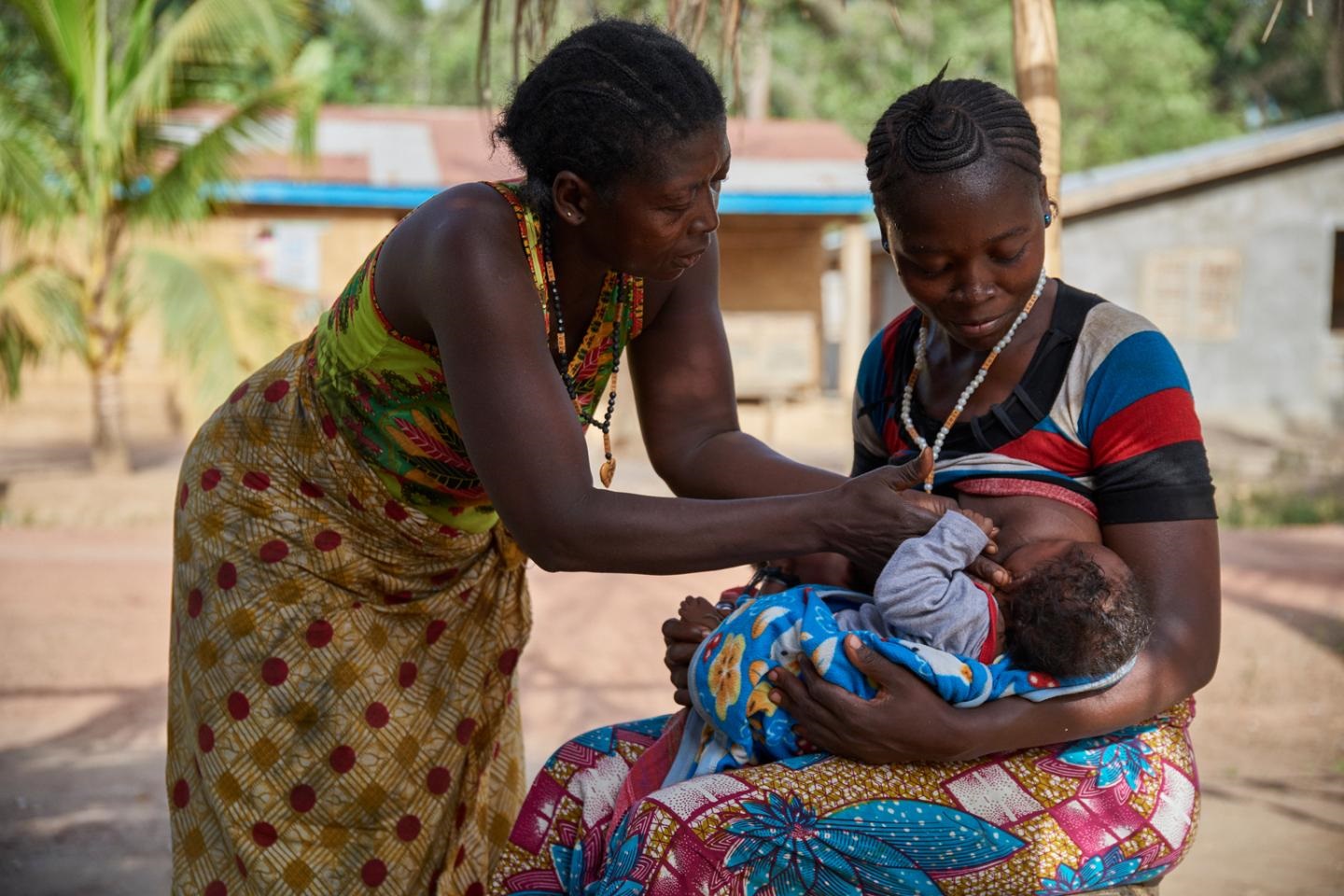Women are central to breastfeeding, and not just because they have the mammary glands babies need to suckle.
In the face of dwindling rates of breastfeeding and a need to lift the numbers higher, women can be change agents themselves.
This week has been devoted to World Breastfeeding Week, and the global theme of collective responsibility to protect breastfeeding.
It is crucial to the wellbeing of children—nearly half of all childhood diseases and deaths are linked to malnutrition of some form.
Nearly 37 in 100 children under age 5 are too short for there age, nearly eight in 100 are too thin for their age, and some 23 in 100 are underweight, according to National Demographic Health Survey.
It doesn’t mean breastfeeding doesn’t happen. Almost 97 in 100 children get breastfeed—and that’s only half the picture. Nearly half of all babies got a pre-lacteal feeding, a feeding of milk substitute, glucose or some other fluid administered because the breastmilk was perceived insufficient or not forthcoming.
“It is not a matter of eating food—what did you eat? It is not just about breastfeeding, but exclusive breastfeeding,” says Binyerem Ukaire, head of nutrition at the federal health ministry.
Nigeria’s agreed target is to have half of all children get exclusive breastfeeding—on only breastmilk for the first six months of life—but the country’s figure currently stands at 29 in 100 children.
“We have a problematic situation as far as the nutritional status of children is concerned,” says Ukaire.
The tips for success are early initiation to breastfeeding, preferably within an hour of birth; exclusive breastfeeding for six months; and continued breastfeeding with adequate complementary feeding up till two years.
“What you will do to ensure your children are materials for future development. It starts with the first 1,000 days [of life—from conception till age two].”
But in all the stages of breastfeeding, barriers exist—in decision to breastfeed, in initiation of breastfeeding, and in exclusive breastfeeding for six months.
Ukaire says the role of women as change agents begins from encouraging pregnant women to register for antenatal care, be advocates and role models.
Different groups of women convened this World Breastfeeding Week to consider the roles of women as change agents. Market women gathered in their time can take minutes off their trade to listen to advocacy messages.
Muslim women groups underscore how the Qu’ran expressly urges breastfeeding for two years—and how wearing the hijab can enhance convenience and privacy when women have to nurse babies in public.
And Christian women groups emphasis interphase with both married and unmarried women.
“It is about being ready. The milk cannot produce without you getting ready for it,” says Florence Uchendu, who chairs the FCT chapter of the Nutrition Society of Nigeria.
Beyond individual women, it also includes protecting breastfeeding through policies by government and in the workplace.
“The workplace has a responsibility to ensure mothers given work have support for breastfeeding,” says Beatrice Eluaka, executive secretary of Civil Society Scaling Up Nutrition in Nigeria. She spoke at a meeting with the women leaders to market the week in Abuja.
The recommendation is four six months of paid maternity leave to help mothers spend more time with their babies and encourage exclusive breastfeeding.
Only four states have made moves to roll out six months of maternity leave for mothers.
“We agree breastfeeding should continue up to two years of age, so we must ensure the workplace is conducive,” says Eluaka.

 Join Daily Trust WhatsApp Community For Quick Access To News and Happenings Around You.
Join Daily Trust WhatsApp Community For Quick Access To News and Happenings Around You.

